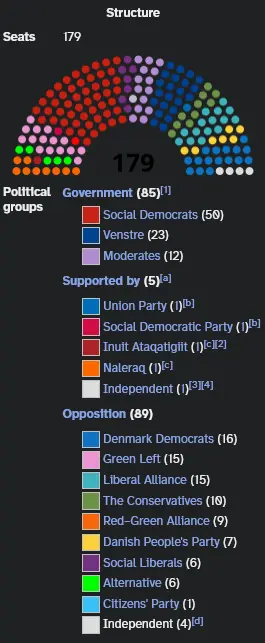If your position as a civil servant involves official communication with companies, you’re going to need the § sign a lot on a daily basis, and the Nordic countries have basically always had large public sectors.
- 0 Posts
- 28 Comments

 5·1 month ago
5·1 month agod i v i s i o n.

 10·2 months ago
10·2 months agoslammed into the Martian countryside
At least it avoided the Martian urban areas.

 12·2 months ago
12·2 months agoBite coaster, pour tequila in sink, add lime to taste.

 3·3 months ago
3·3 months agoAmmonia and bleach (sodium hypochlorite) make chloramines, not mustard gas. Still very not healthy, though.
$ cat ~/.config/bat/config
The irony.
To be fair, if being able to tweak everything makes you happy (and I get that), Gnome is probably a horrible choice of DE in the first place.

 4·3 months ago
4·3 months agoYou could try Eurostat.

 21·5 months ago
21·5 months agoNah, rollbacks are a feature to save you when it has broken. A good one indeed, but it’s more akin to a fire extinguisher. It doesn’t prevent the problem, but it does prevent everything from being a pile of ashes.
Turn the page about 45 degrees clockwise, you’ll write more straight across the page and the pen will work better because you’re not pushing it. Experiment until you find the angle that works best for you.
Additional bonus: No more smudges on your hand/the page.
Well, OP only specified that they’d been using Linux for about a decade; no mention of their laptops not being from the early 90s. :)
Whatever nebulous issues one or the other may or may not have had, my personal experience is that startpage (from my understanding, basically privacy’d google) provides higher quality search results than DDG (fmu, basically privacy’d bing).

 6·6 months ago
6·6 months agoGreat operating system, that. Shame it lacks a text editor.
Astronomers would notice immediately, as the stars would be in very wrong positions. The IAU is the primary reason why IT people have to hack around leap seconds.
There are people coming from Windows, which does not have
dd.
What the vast majority of people would probably think of when they hear the word ‘fire’ is actually flames; flames are quite simply particles emitting light.
For an everyday example, take a campfire: The wood logs you see burning are at such a high temperature that they give off methanol (and other flammable chemicals), which is most of what’s burning. Apart from the methanol being driven off of the wood, there will be other chemical compounds and/or larger clumps of more-or-less-burned wood that will be carried off. These larger clumps in particular, while very small, are nonetheless large and hot enough to start emitting light in the visual spectrum. This is essentially what a flame is: Particles emitting light.
Fire in and of itself is quite simply rapid oxidation in the presence of oxygen.
The above is, arguably, a gross oversimplification.
TLDR: Flames are particles, fire is combustion.

 331·7 months ago
331·7 months agoIt doesn’t matter.
It REALLY doesn’t matter.
Best way I saw it expressed: If you did something that was NOT a nazi salute, but other people perceived it as a nazi salute, you would IMMEDIATELY apologise and walk it back. Given that Muskolini has not done that, he did indeed do a nazi salute.

 10·7 months ago
10·7 months agoHere’s one for less than 4 USD. I imagine 150 mm in length would be sufficient.


More or less. In my layman’s understanding: Black holes ‘evaporate’ slowly through Hawking radiation, losing mass as a function of their surface area (simplistically, particle/anti-particle pairs ‘pop out of nothing’ near the event horizon, one gets swallowed up the other escapes, this means a net loss of energy, which has to ‘paid’ by the black hole losing mass, think E=mc2).
Since a black hole behaves (geometrically) like any other sphere, the proportion of its area to its volume will grow as the black hole loses mass (i.e. it will have more and more relative area the smaller it gets), this process speeds up over time thus ending in what I guess you could call an explosion (more a whimper than a bang, to borrow a phrase).
Part 2 of your question: We don’t know.